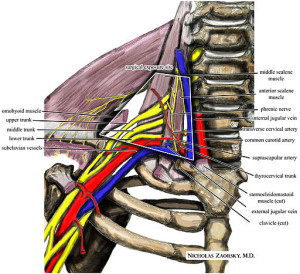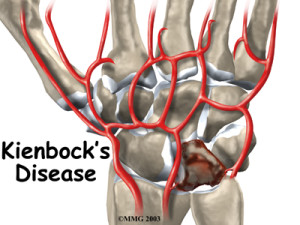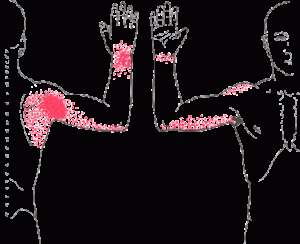Have you ever heard of snapping scapula syndrome? If you answered no, I would not be too surprised. Whilst this condition is more common than you may think, it seems to be underappreciated within the physiotherapy. Thus, this article will discuss snapping scapula syndrome including what it is, why it occurs and what you need to do to fix it!
Those in the world of sports physiotherapy would be aware of the frequency with which we encounter episodes of patellar instability. Whilst much research is performed in the adult population, it is important to recognise patellar dislocation as one of the most common acute knee injuries in children. Accordingly, this article will discuss new research into the predictors of patellofemoral joint instability in the adolescent and paediatric populations.
Many of the world’s sports physical therapists and physiotherapists spend their weekends at sporting events around the world. Unfortunately, many of us do not have the support of a huge medical team around us, such as that available to James Sutherland at Wallabies games. Therefore, we are often the most highly trained “medical” staff at any given event, and when it comes to injured athletes the buck stops with us. This means we require knowledge on a variety of conditions that may not be “sports” injuries and many abdominal injuries may fall outside the expertise of a physio.
Introduction The condition discussed in this article, you will come to find, is quite complex and can be a battle for the physiotherapist and physical therapist. Thoracic outlet syndrome is considered to be a collection of quite diverse syndromes rather than a single entity (Yanaka et al., 2004), and therefore, accurate diagnosis and enlightened treatment […]
Kienbock’s Disease is a rare and infrequently discussed source of wrist pain that you could definitely encounter in your clinical practice. The condition is named after the Viennese radiologist Robert Kienbock who presented his findings on the disorder in his 1910 publication ‘Concerning traumatic malacia of the lunate and its consequences’. This condition, discussed in depth below, primarily affects people between 15 and 40 years old and has been documented in athletes from many sports that include repetitive use of the wrist e.g. golf, tennis, martial arts, etc . Therefore, if you work with athletes from these sports, you should remain on high alert for the occurrence of Kienbock’s disease.
Introduction With a name like that, all physiotherapists will remember this one! But how much detail is remembered? Have a quick think about how many wrist patients you see, compared to knee or back patients. If you are in a private practice/outpatient clinic with a demographic anything like mine you will be seeing mostly backs, […]
Groin pain is a common complaint in sports involving running, kicking and explosive changes of direction, and as such is frequently encountered by the sports physiotherapist. In soccer, groin and lower abdominal pain accounts for 10-13% of injuries per year. However, due to the number of potential differential diagnoses for athletes with chronic pain in the groin and lower abdominal region only a small proportion of athletes are eventually diagnosed with athletic pubalgia (sports hernias). Athletic pubalgia is a poorly understood disease process and it is imperative that athletes with the condition are managed appropriately as the symptoms can eventually limit the athlete’s participation in training and playing.
Now, I’m not hear to scare you. But there are many conditions out there that are so uncommon that we often don’t even know that they exist. Unfortunately, sometimes these conditions may walk into our clinics and have us shaking our heads in disbelief and asking ourselves… ‘why don’t you fit into that diagnosis!’. I think for many pigmented villonodular synovitis (PVNS) of the knee is one of these diagnoses. It is quite rare, however, it presents similarly to many of the conditions that we as sports physiotherapists treat on a daily basis. This article discusses PVNS including assessment, diagnosis, and the treatment options.
In the world of sports physiotherapy the assessment and diagnosis of knee pathology is a daily event. As we are all well aware, an accurate diagnosis is achieved only via a skilled subjective and objective examination. Thus, sports physiotherapists will regularly rely on the results of special orthopaedic or clinical tests to make a diagnosis. This is well covered ground on this site, as we regularly the discuss the diagnostic accuracy of clinical tests for common conditions. However, there is always new research regarding the accuracy of existing techniques and the development of new ones. This leads to new research on the use of joint line fullness to assist in the diagnosis of meniscal tears. This article will discuss the technique and its potential clinical utility.
Shoulder injuries to the rotator cuff are very common. Whilst rotator cuff injuries are more commonly seen in supraspinatus and infraspinatus, there has been a recent increase in awareness and recognition of subscapularis injuries. In fact, Barth et al. (2006) suggested 29.4% of those who underwent shoulder arthroscopy for a rotator cuff tear had involvement of the subscapularis. Therefore, a thorough understanding of the evidence based clinical assessment for subscapularis is essential, and is thus presented in this article.
In the past this site has featured some lighter, colloquial blog posts. These articles discuss issues related to the greater physiotherapy community. Thus, I present a few mantras I have heard, adapted or made up for the physios to live by in the coming year.
Radial tunnel syndrome is rare, it is challenging to differentially diagnose and can be a monster to manage. If you have a recalcitrant case of tennis elbow then this post will interest you! This article discusses the best available evidence for assessment and management of radial tunnel syndrome.











